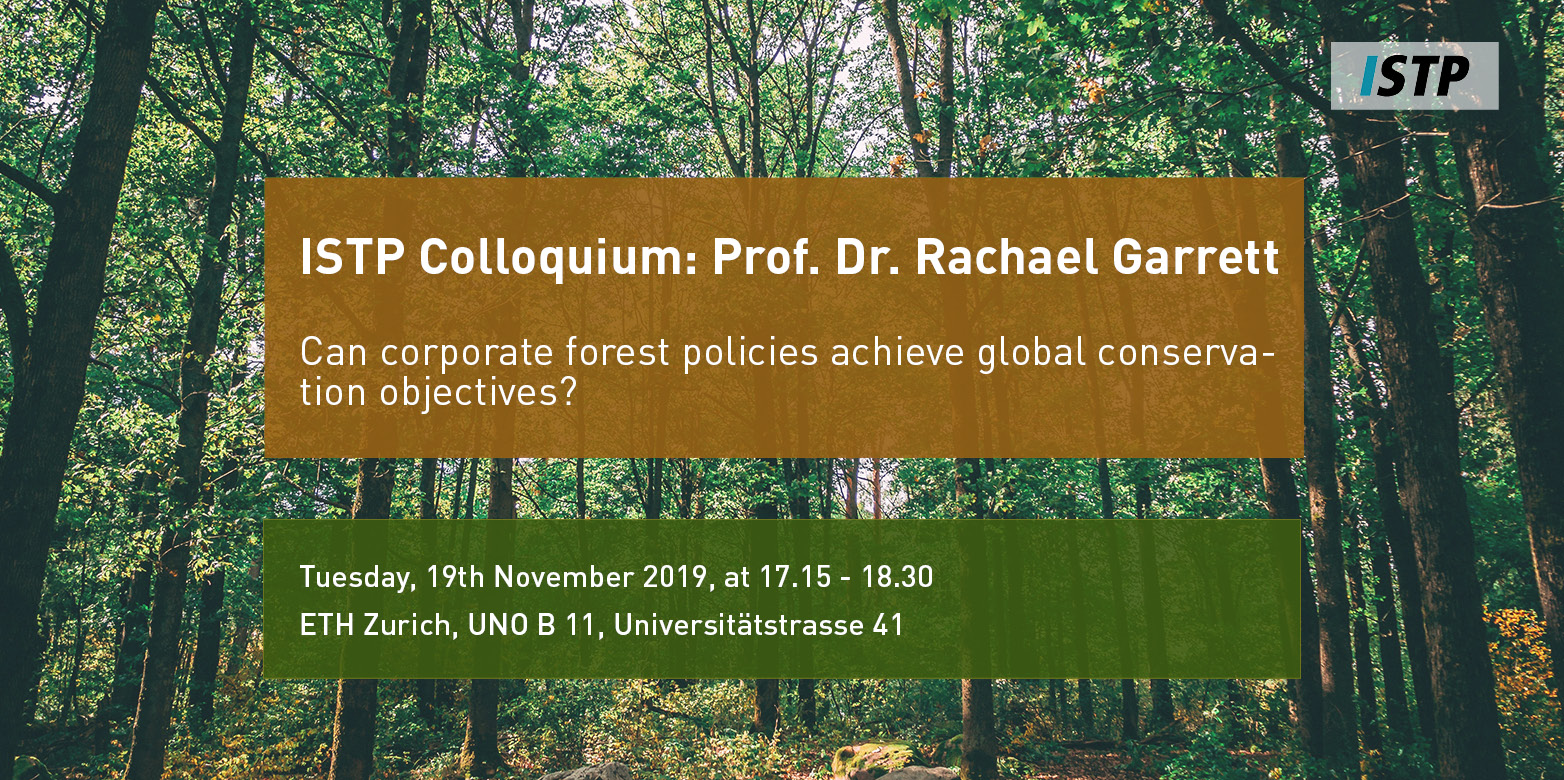Can corporate forest policies achieve global conservation objectives?
ISTP Colloquium on Tuesday, 19th November 2019 on "Can corporate forest policies achieve global conservation objectives?" by Prof. Rachel Garrett, Assistant Professor of Environmental Policy at ETH Zurich and newest member of ETH4D.
About the colloquium
As food systems have become more globalized, their governance has been increasingly influenced by private companies. Forest-focused supply chain policies (FSPs) have been adopted by major food retailers, traders and processors and present a promising leverage point to influence the land use behaviors of producers further upstream, especially in light of recent reversals in public forest protection (e.g. Brazil). Yet, the conditions under which these FSPs can lead to positive conservation and livelihood incomes remain unclear.
Recent systematic reviews of FSPs have focused on food certification programs, synthesizing either their livelihood impacts or their conservation impacts, with little crossover. To date, no review paper has examined both the conservation and livelihood impacts of the full range of food sector FSPs across all forest-risk commodities, or the conditions underlying their success or failure.
Here, Prof. Rachel Garrett will present a set of criteria to assess the expected effectiveness of FSPs within individual company supply chains regionally, and globally. These assessment criteria will be used to evaluate existing FSPs as written, and provide a systematic review of the literature to synthesize existing understanding of their conservation and livelihood tradeoffs. The colloquium will be concluded by discussing the mechanisms leading to particular outcomes and recommendations to better tailor the design of FSPs to local contexts.
About Prof. Rachel Garrett
Rachael Garrett is Assistant Professor of Environmental Policy with dual appointments in the Dept. of Humanities, Social and Political Science and the Dept. of Environmental Systems Science. She has an interdisciplinary training in economics, geography, history, systems thinking, environmental science, and policy analysis. She received her PhD through the Emmett Interdisciplinary Program in Environment and Resources at Stanford University in 2013, her MPA in Environmental Science and Policy from Columbia University in 2006, and her BA in History and Environmental Analysis and Policy from Boston University in 2003.
Dr. Garrett’s research examines interactions between land use, ecosystem services, and economic development at multiple spatial and temporal scales to better understand the drivers and impacts of land change and the effectiveness of existing conservation and agricultural policies. She is particularly interested in how commodity supply chains interact with environmental institutions to shape land use processes, resource distribution, and trade. The applied outcomes of this work are the identification of policies, technologies, and market solutions that will help feed a growing world population without compromising the well-being of future generations. She is particularly interested in ways that we can scale up sustainable practices in commercial farming systems, which occupy a majority of the world's land base.
